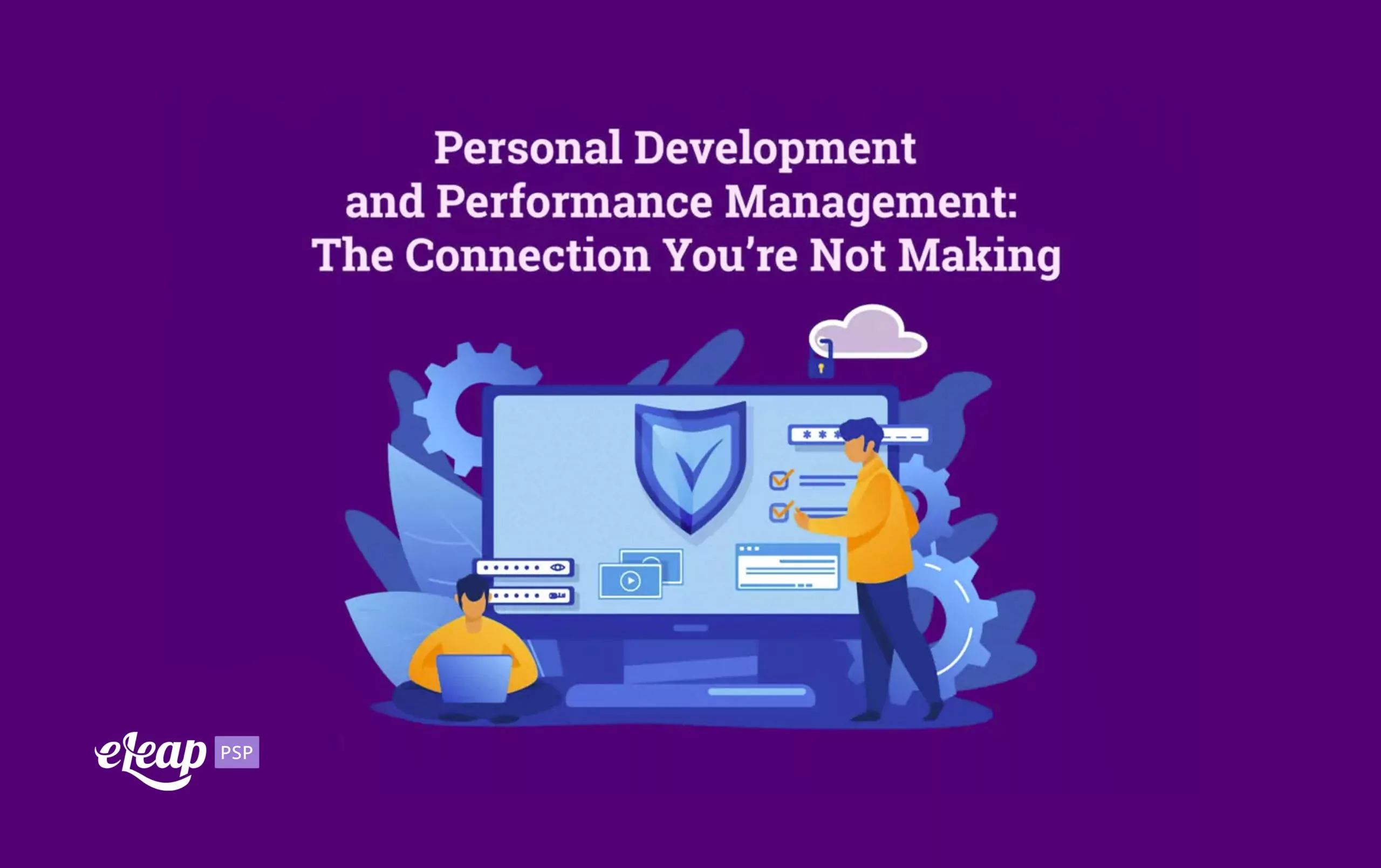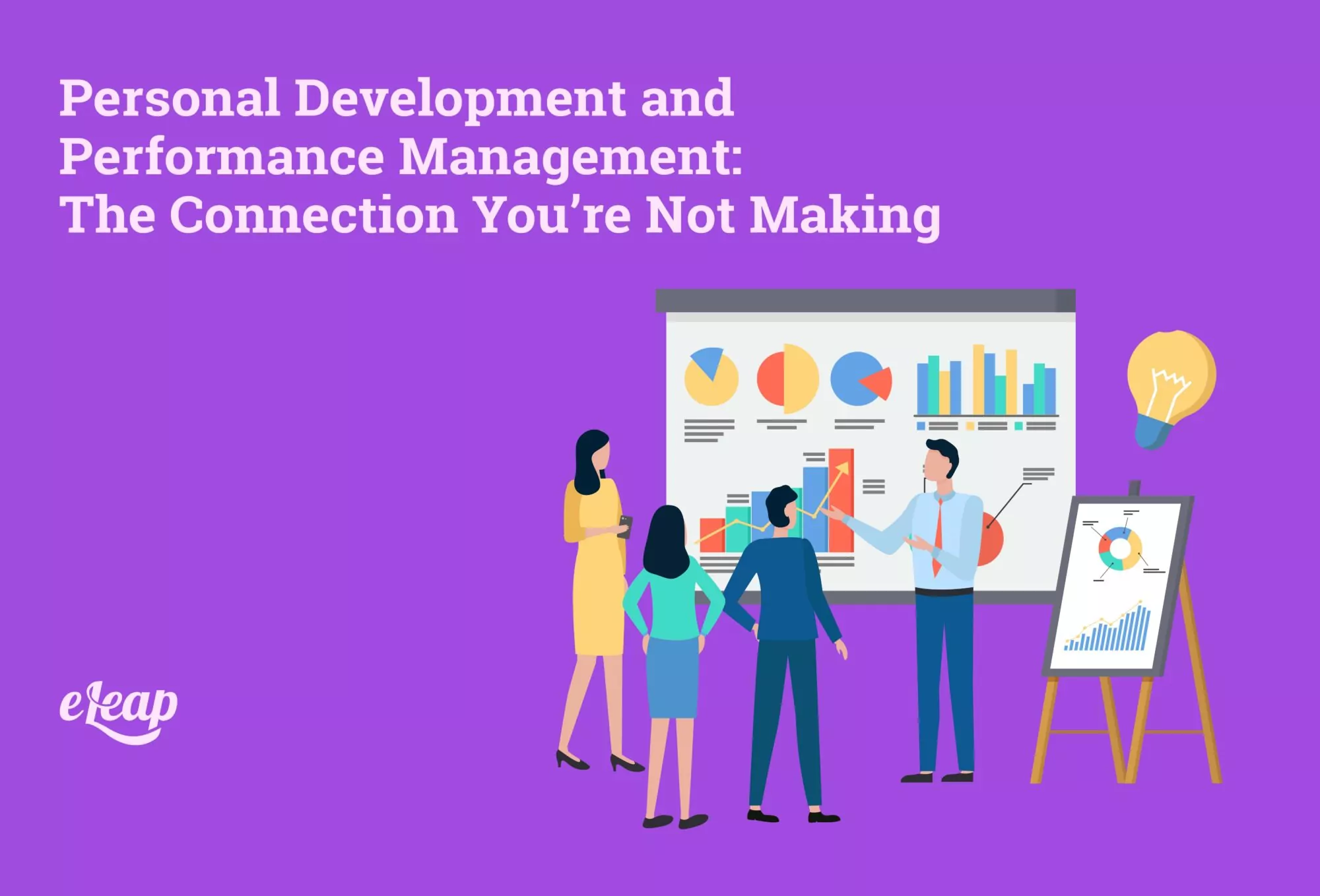Personal Development and Performance Management: The Connection You’re Not Making

Managing employee performance is critical to business success. However, that is a one-way view that often delivers lopsided results. When managers attempt to coach employees simply based on their value to the organization, it neglects a crucial fact – team members are more than just employees.
They’re whole individuals. They have their own wants, likes, dislikes, loves, talents, and dreams. Without a holistic view that encompasses the entire individual, you’re only doing half of what is necessary to achieve meaningful results.
To overcome that skewed view, managers must learn to consider other aspects of their team members and to help them develop personally, as well as professionally. Anything less is a bit like watering a tomato plant without giving it sun. Sure, it needs water, but without both sunshine and water, it is not going to thrive.

Why Does Personal Development Matter to On-the-Job Performance?
Before we delve any deeper, let us consider why personal development matters to an employee’s performance on the job. Understanding this will help managers become better coaches and provide support for their teams. However, for those mired in old ways of thinking, it is not so easy to grasp.
Personal development matters for several reasons, including:
- Engagement: When an employee feels that their entire being is supported, they are more engaged. Higher employee engagement drives improved performance, better retention, increased morale, and other crucial metrics of organization success.
- Innovation: When employees feel that they are supported by their employer, they are more likely to try new things with less fear of negative repercussions if they fail. That leads to innovation, which supports an improved ability to compete in the market.
- Better Alignment: Can your employees name the company’s priorities? Chances are good they cannot, and that’s often because they don’t align with employee values. Personal development helps align these two to foster better success.
How to Ensure Personal Development for Your Team
Given how critical it is to holistically develop your team members, you must know the key areas of personal development on which to focus. There are several that we need to discuss:
Emotional Balance
Sometimes called emotional intelligence, emotional balance is the state of being aware of what you are feeling at any given time and how those emotions affect your thinking, decisions, actions, and interactions with others. Most people struggle with emotional intelligence/balance because we are never really taught how to notice and respond to emotions appropriately.
So, how can a manager help improve the emotional balance of their team members? It comes down to asking the right questions during check-ins and standups. For instance, “How do you feel about your work lately?” can help shed light on a team member’s emotional state, and from that point, you can delve into why those emotions surfaced.
“Are you struggling with anything?” is another good question that can help shed light on difficulties that an employee is experiencing and the emotions that those difficulties engender. For instance, if an employee had information to share in a recent meeting, but someone else talked over them, it is entirely possible (and appropriate) that they might feel:
- Overlooked
- Unimportant
- Undervalued
- Ignored
In some situations, those emotions might even turn highly negative. For instance, in the situation that a male spoke over a female, it could be a sign of hidden sexism lurking in the workplace. If the speaker was a person of color and the individual who spoke over them was white, it adds connotations of prejudice or even racism. In those situations, you must delve deeper to uncover the truth and perhaps institute new sensitivity training or diversity training programs.
By asking questions, you help employees meet the basic needs that everyone has – the need to be heard, recognized, and valued. Without that, engagement will plummet and employees will begin abandoning ship for competitors where they can have a more positive experience.
Intellectual Advancement
Sure, you already provide some types of training to your employees. The issue at hand here is that the training directly relates to their job duties or business in general. While that sort of training has definite value, it still addresses just one part of the individual.
Go deeper with your training. Offer access to training on mindfulness and meditation. Help your employees learn better personal finance skills. Help them understand office ergonomics better.
You get the idea. Intellectual advancement does not have to be business-focused. It should be life-focused. Give your people the chance to develop and grow intellectually and you help them develop holistically, as well. The result is a more engaged workforce, improved company loyalty, and better morale across the board.
Improve Their Health
Without healthy, well-balanced employees, your business cannot advance and grow. The rising trend of focusing on helping employees balance their physical, mental, and emotional health is directly related to that reality. You can and should make this part of your performance management efforts, as well.
How do you help employees improve their mental, physical, and emotional health? You’ll find many different options available, including the following:
- Teach Meditation and Mindfulness: Give your employees access to training regarding meditation and mindfulness, both of which have shown to improve physical, mental, and emotional health, helping employees become balanced, happier, healthier individuals.
- Encourage Physical Activity: Make physical activity part of your company culture (without shaming those who are less physically capable than others). Offer a discount to a local gym, or host weekly Zumba or yoga classes. Establish a company 5K run/walk, or encourage employees just to go to a local park and enjoy the outdoors.
Personal Development Is Not Optional
Focusing solely on performance management is a mistake. Employees are not two-dimensional cardboard cutouts. They are complex, multifaceted individuals. By adding personal development to your performance management toolbox, you help them develop holistically and support better outcomes for both employees and the organization as a whole.